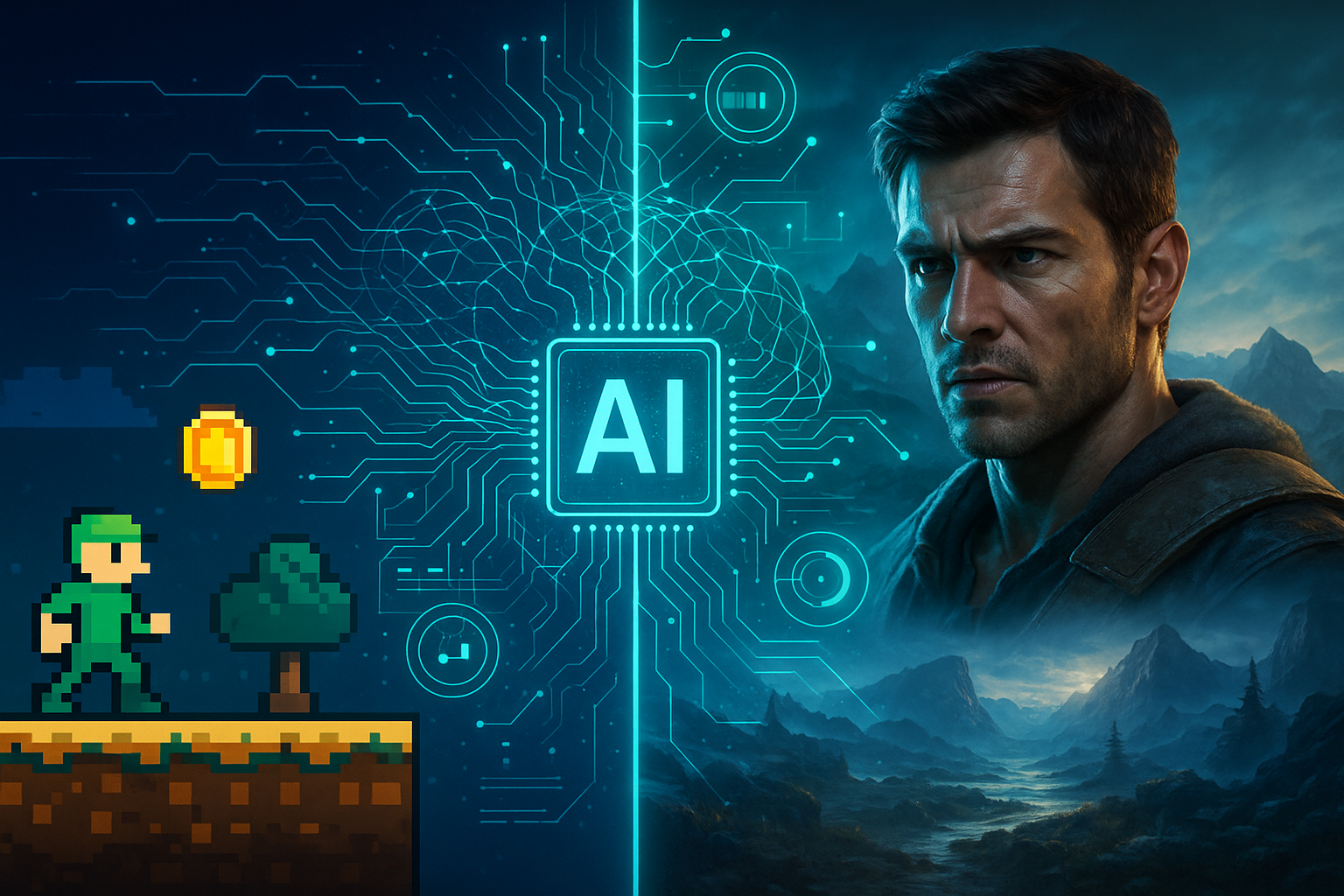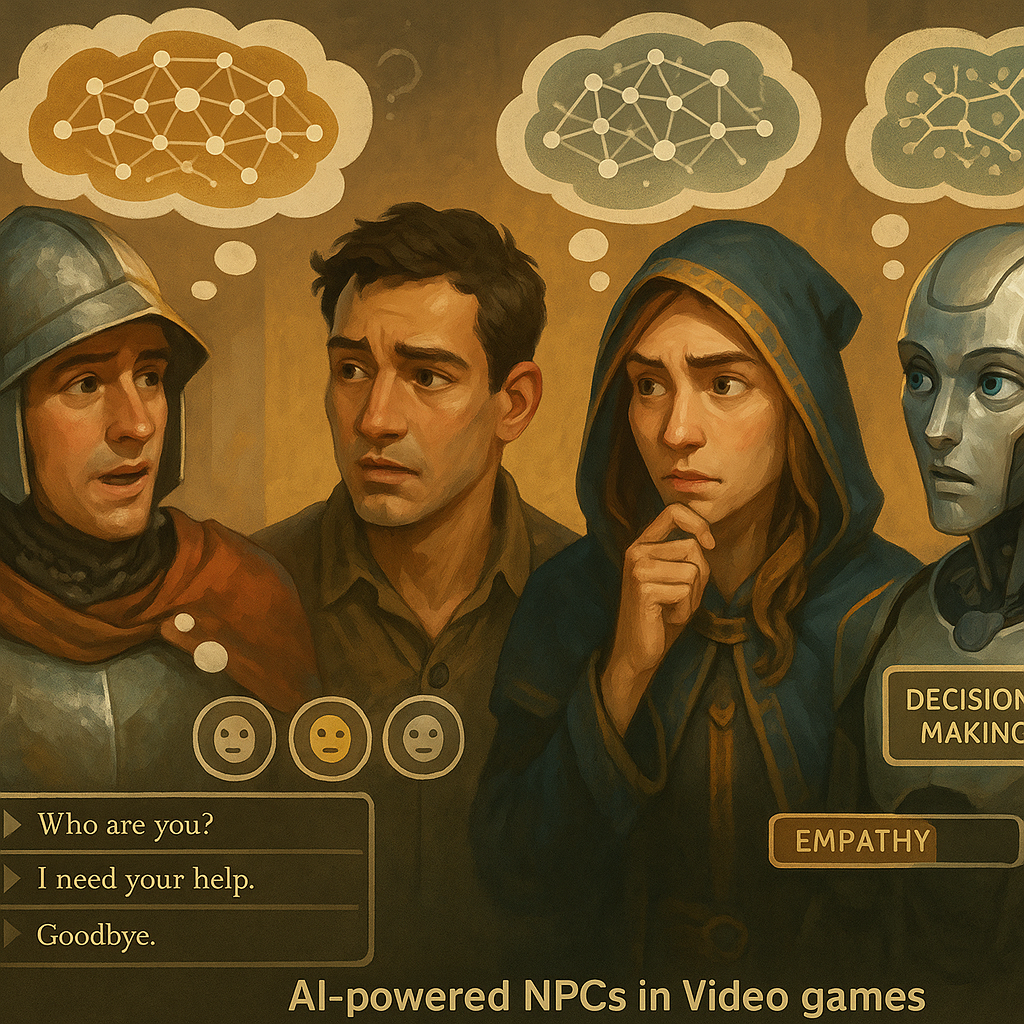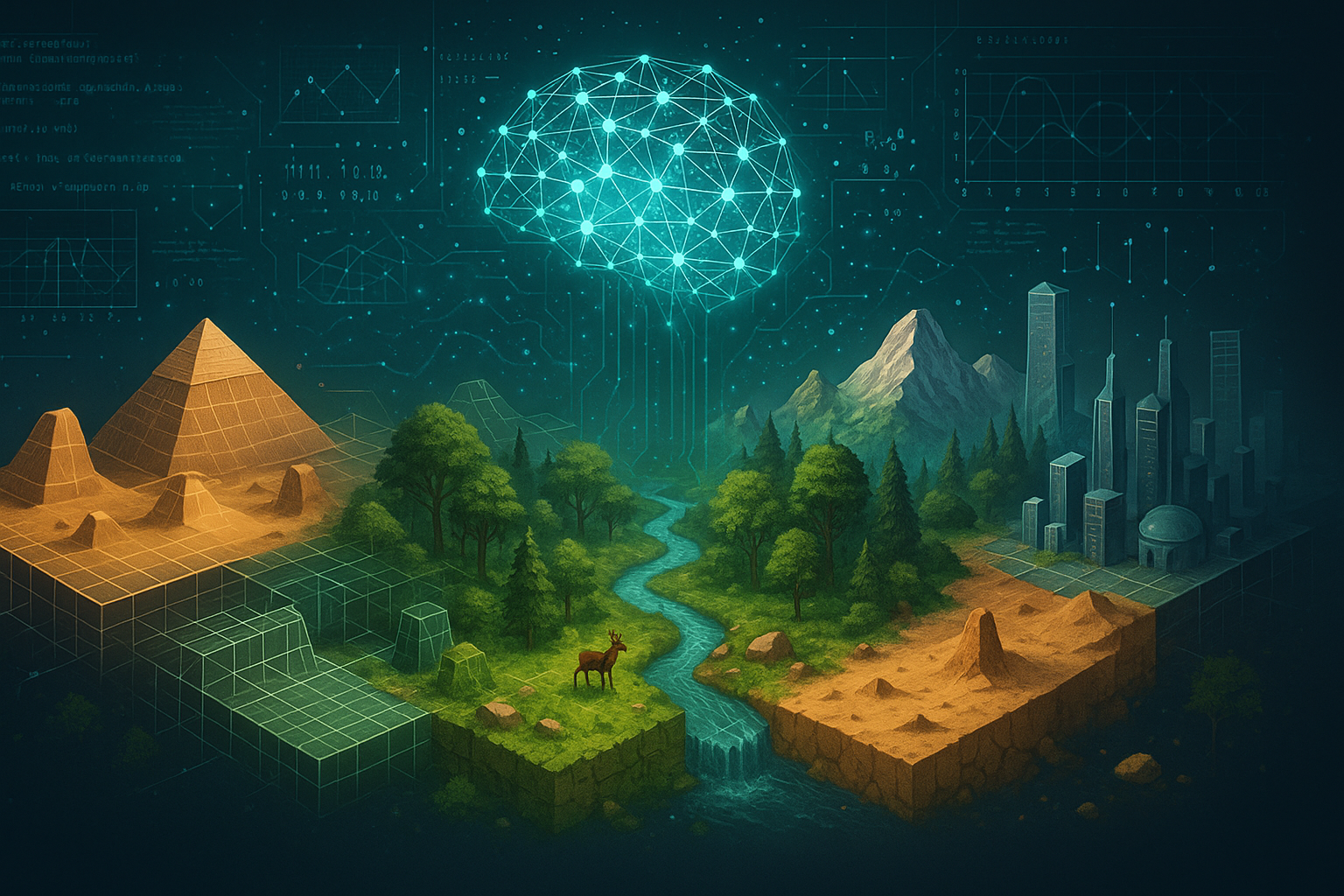
The world of video games is experiencing a massive revolution thanks to rapid developments in artificial intelligence (AI). AI is no longer just a tool for moving enemies randomly; it has become a driving force that contributes to creating more realistic, interactive, and deep gaming experiences. In 2025, the impact of artificial intelligence has reached unprecedented levels, fundamentally changing how games are designed and how players interact with them. In this article, we'll explore how AI is helping shape the future of the gaming industry, from non-playable characters (NPCs) that behave intelligently to worlds that are automatically generated infinitely.
Smarter and More Realistic Non-Playable Characters (NPCs)

One of the most prominent impacts of artificial intelligence in games is the evolution of non-playable characters (NPCs). In the past, these characters followed predetermined paths and repeated the same dialogues, making them appear artificial and predictable. Now, thanks to advanced AI technologies, NPCs have become capable of interacting with players dynamically and realistically.
These characters can remember their previous interactions with the player, change their behavior based on the player's actions, and even learn from their playing style. This creates an immersive experience where the player feels they are dealing with real characters who have their own motivations and emotions, adding significant depth to the story and world.
Procedural Content Generation (PCG): Infinite Worlds

Procedural Content Generation (PCG) is one of the revolutionary applications of artificial intelligence in the gaming industry. Instead of developers manually designing every part of the game world, AI can automatically create massive and diverse worlds.
This not only saves developers enormous time and effort but also opens the door to unique gaming experiences every time. AI can procedurally generate maps, quests, stories, and even characters, meaning each player will have a different adventure. Games like No Man's Sky and Minecraft are excellent examples of the power of procedural content generation in creating infinite worlds for exploration.
Conclusion
Artificial intelligence is not just a new technology; it's a creative partner that contributes to pushing the boundaries of the gaming industry to new horizons. By making characters smarter and worlds more diverse, AI contributes to creating gaming experiences that weren't possible in the past. As these technologies continue to evolve, we can expect an exciting future for games, where every experience becomes unique and personal, and the boundaries between reality and imagination fade away. What are the most exciting AI applications in gaming for you? Share your opinion in the comments!
